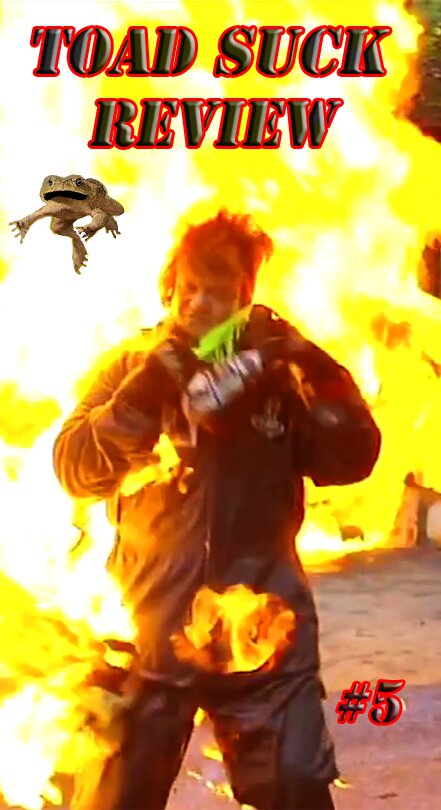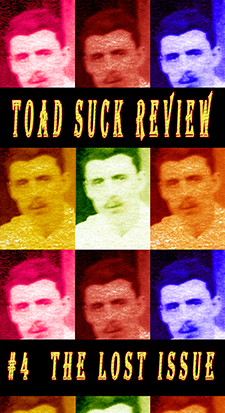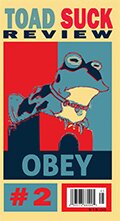John’s wife, Mary, mother of five children, pregnant for the sixth time, had been ill with a sore throat, a severe headache, then a 103° temperature spike followed by racking coughs and nosebleeds.
Days later, John stood between the convent and the church. He placed his hand on the limestone corner post, and waited for his wife and children. The wind shoved piles of Russian thistles against the fence while music mixed with the lingering scent of candles, flowers, and incense hanging in the air. The final songs were interrupted by chattering, and John squinted at a knot of sparrows threatening a hawk that dared to threaten one of their nests.
At the corner of the fence, John noticed a cluster of convent girls his wife had predicted would not remain there for long. “Too much the rebel, too lively to stay in that place. They’ll find husbands before they find God.” He smiled as he recalled that, after a moment, she added, “Or husbands will find them.” His memory roamed to what she said next, “Girls who smile and raise their shoulders like that are not preparing to say the rosary.”
#
Forty-two years earlier, John’s grandfather, Jacob, had escaped from broken promises, destroyed dreams, and buried children; he endured four months of mid-nineteenth century travel from Ukraine, down the Volga, through the Crimea, over the Black Sea, Turkey, the Mediterranean, the land route through Spain, then over the Atlantic Ocean and half of America to claim his family’s future. John’s grandfather wanted his son, Lawrence, to see tomorrow, or, at least, to have enough to eat and not be forced into the military.
It was 17° when Jacob was met in his Promised Land by recalcitrant soil, arrogant weather, and severing wind. He would tell his grandson he knew if the wind did not bury him, it would shove him forward. But when Jacob inhaled, the cold air felt familiar, the odor was familiar; the sounds were familiar: bovine grunts, feral howls, children whining.
His wife, Katherine, sat in the wagon and stared down at him—her eyes set and determined, her smile fixed, not yet frozen. This was not her Promised Land, but it was not her Gethsemane either. There was limestone for houses, buffalo chips for fuel—and where there were buffalo chips, there were buffalo and that meant food. There was a home for them if they did what their families had done for generations—work the land and improve it.
Jacob’s son, Lawrence, had christened his first child Johannes, but insisted he be called John, then worked hard to master the unfamiliar sound of the American hard “J,” settled instead for the “ch” sound, and thereafter called his son, “Chon.” He gave each of his children American names and nicknames. As an adult, only John’s wife and sister, Emma, called him Hans.
John and Mary had come together because they lived in an enclosed community, their grandparents were from the same village in the Volga region of the Russian Federation, and they had immigrated to America together.
A flurry of gold fever in that area prompted their decision to set up a general store and lumberyard in Berdan, a crossroads village between the southwest part of the state and the military fort. The gold eventually mined out, but lumber, roads, water, and limestone remained. People who migrated into the town from surrounding areas had presented John an opportunity that had eluded his father - a growing population not served by nearby towns.
#
The early October wind that year delivered cool days and crisp evenings coupled with multi-colored fields and trees. October’s strength gathered later in the month with overcast days, longer, colder nights, and an invading wind that chilled and took up residence until late April.
To live then was to live in another time—no one in Berdan had talked on a telephone, listened to a radio, turned on an electric light, cooked food over anything but buffalo chips or wood, experienced a pain-free dental visit, or visited a doctor who graduated from medical school.
It was a place where uniformity and familiarity were sacred, where people from a town a few miles away were outsiders and where the first pages of a grandmother’s bible told a family everything it needed to know about its place in the world.
#
A week earlier, John walked in from the outhouse, a tiny shed with a nine-foot deep hole underneath a wood slat that extended across two other slats raised by a box constructed of one-by-threes from the chicken shed. He waited in the kitchen near their stove, then leaned against the galvanized sink he had built from the remnants of the windmill from which hand-pumped water diverted from the cattle trough into the kitchen.
When Mary walked into the kitchen, John smiled and kissed her cheek. She pointed to the rifle. “I’ll carry it today while you drive.”
John lifted Mary into their horse-drawn farm wagon. While he talked of livestock, land, and weather, she listened and enjoyed the last of the sunflowers facing east, which, upon their return later that day, would face the setting sun. John held the reins between thumbs and forefingers. He glanced at his wife, pleased that today she was as giddy and happy as a young girl.
She turned, “Hans, we are so lucky to have our church and your sister so close to us.”
He looked at his wife, her German cadence contrasted with her green eyes and ready smile, then he nodded and patted her knee. In a time when many men treated their wives as chattel, John treated Mary, as he knew she was—a gift.
John’s wife came from a family whose very existence in America depended on its success with hard bargains. “Mary could rub two nickels together and get a quarter,” John bragged to his friends, as he exhaled smoke from a cigarette seldom removed from his mouth. He never flicked an ash, but let gravity earn its keep around him. As a wife, Mary’s duties were basic: keep the house running smoothly, their children quiet, her husband content, and negotiate the contracts for their general store and lumberyard.
She had her focus for the day—secure the best price for the best goods to supply their general store. Every week she negotiated the agreements; after John signed them, they packed the wagon, and headed back to Berdan to stock the store.
“Who do you think I’ll deal with today?” Mary asked as she held the rifle.
Later, when John gave his suggestions about how she should approach the sutler, she replied, “We’ll see how it goes, Hans. We’ll see.”
He had learned to let it drop. Waited a moment, then asked how she felt.
“Sehr gut, Hans, sehr gut.” She corrected herself immediately. “Very good, Hans.” It was her rule that “In this country, we talk American.”
The fort was a crowded enclave with rutted, muddy streets and muddier men, wooden planks in front of the sutlers’ stores, and four inch raised platforms in front of the Federal establishments. The fort was overlaid with a staggering odor unmatched inside a hot, wet barn. Mary disliked the stench and confined space, and wondered how folks lived in such close quarters and filthy conditions yet maintained any level of civility or health.
John pulled the reins to stop the horses, and touched Mary’s shoulder. He jumped down, walked around to her side, and held out his hand. She placed her foot on the toe board he had installed during her second pregnancy, balanced herself on the hand brake lever, swatted at a small swarm of flies, then stepped onto the iron tire. John lifted her, and she whispered in his ear. He smiled as he watched her walk into the sutler’s wedge tent.
#
After church that following Sunday, Mary struggled to the porch, so exhausted she was barely able to shuffle into the bedroom. She pressed the heels of her hands against her eyes to relieve the pressure, and said she saw “nothing but sparks.” Tired, hot, and coughing, her headache accelerated, she felt as if her brain chilled, then turn hot. The northwest wind blew at a strange angle that made her too hot, then too cold, and gave her eyes a sandpaper feel she knew would remain for hours.
John’s sister walked into the kitchen that evening. When she saw the children waiting for their supper, she said in an amalgam of German and English, “Hans, was ist los?” She corrected herself, “What’s wrong?” Then reacted to his answer, “Mein Gott, Hans,” crossed herself old-style. She pointed at the children, and, in her weighted German accent, said, “All of you, come with me. Schnell.” She waved her hands in the direction of her house. “I’ve got stew and rhubarb pie in my kitchen for you.” They followed her like ducklings.
Each time Mary coughed, John heard her silent voice plead for relief. He had listened to that voice for years, but today it was different. She had been sick before, but this time, she sounded separated from her body. Even more worrisome, she was not angry.
After Mary drank a honey and bourbon concoction he prepared, she revived temporarily, then slept. John watched as she lay in a fetal position. Two hours later, she woke with bloody ears and nose. Her pillow was stained red. Her face had turned a light blue. She complained of an acidic, bitter taste, “My throat burns.” Mary felt her wet hair, sat erect, and pointed to the mirror. She saw herself through coughs and spasms. “John, I feel I’m dying.” Her eyes met John’s, then they darted toward the bedroom window. Outside was her dormant flower garden where she had planted and nurtured her perennials since their marriage. She reached for John’s hand, looked out the window again. John thought he heard, “I won’t see the flowers in spring.” He sat on their bed until she fell asleep.
Later that evening, he removed the mirror from the bedroom and sent their three youngest children to his sister’s house. The next morning their two oldest children, Edmund and Josephine, began to work in the general store.
Medicine in Berdan was homegrown. Dr. Bedhauser, the town doctor, pharmacist, mortician and barber, told John to “Watch me; you will need to do this if Mary starts to bleed from her ears.” Then he placed heated cups made of cow horn on Mary’s neck and upper back; minutes later, he removed the cups, made small incisions, and placed the reheated cups over the incisions to draw out a small quantity of blood. After that, he prescribed his own patent medicine, and distributed Vicks Vapo-Rub and a few belladonna capsules.
His theories about the cause of Mary’s illness ranged from Berdan’s daily blinding dust to the piles of manure produced by horses and cattle, which was burned each week and produced a thick yellow haze. His favorite theory was miasmas - an imbalance in the body’s humors of blood, phlegm, yellow and black bile. “If you see blood from her mouth and ears again, try this.” He handed John the cupping device to draw out the miasmatic poisons.
He rested his hand on Mary’s forehead while he advised, with an authoritative demeanor, as if considering one of many options, “Best to use garlic with the Vick’s Vapo-Rub.”
In his weighted accent, John asked, “But, what’s wrong. What’s she got?”
Dr. Bedhauser motioned for John to follow him. In the living room, he said, softly, “It may be the black plague all over again.”
Mary grew weaker from the fever. When she tried to sit straight, she fell back. Tears filled her eyes, “I’m too weak.” Her face had grown slack and drained; her mouth opened slightly, “I can’t see you, Hans.” She attempted to say more, but could not.
He held his wife after she coughed with a force so fierce it tore her abdominal muscles, and she spewed green-tinged blood. He wiped the blood from her lips, stroked her hair, and helped his sister change his wife’s clothes. When Mary vomited and became incontinent, he cleaned up after her.
Later in the kitchen, his eyes fixed on the open bedroom door, John sat helpless while his sister set out food for the children.
Mary’s illness had spread at sprinter’s speed to her upper respiratory tract, then invaded her lungs and inflamed her heart muscle. There was no reprieve. John held his wife’s hand, heard her cough, felt her convulsions, cleaned up the blood that shot from her nose and mouth, watched as her face turned a blue so deep that in the dim light that it looked black.
When he finally heard his sister’s voice, it was as if she had replied to someone else. He already knew the answer. “The baby died when the mother died.”
Moments later, John stopped the Napoleon clock in the kitchen, and his sister brought flowers to mask the odor. They laid Mary in the living room. Relatives conducted a two-day, round-the-clock, open casket vigil.
#
At the corner of the fence between church and convent, John closed his eyes and caught the fragrance from plowed-under fields to the east, mingled with the odor from cattle, the fresh-turned sod from the cemetery, and the incense escaping from inside the church. The church shadow made the day seem cold and isolated.
He turned toward the brown fields to the south with dried stubble harvested with the efficiency of generations of farmers from west of the Volga River, concentrated on the cattle grazing the fields waiting, while he waited for Mary’s eight-sided coffin. The wind cut him as it had cut his grandfather, and shoved John toward his wife’s grave.
Custom dictated that the husband was to dip the metal perforated wand into the holy water and sprinkle his wife’s coffin before it was lowered. The priest touched John’s shoulder, “John, take the aspergillum.” He pointed to Mary’s coffin. John bent his head and began to tremble. He leaned to the right, his eyes moved toward their house.
He saw his wife at their bedroom window, heard her voice, “Not yet, Hans, sit and wait with me a moment.” He dropped the aspergillum on the wet ground and walked across the street.
John sat on their bed, and heard her voice again, “I won’t see the flowers in spring.” There, on her deathbed, he expelled the contents of the past few days, then bent forward and expelled the contents of his stomach.
He reached for a rag to wipe the floor. When he finished, he walked to the stable to prepare the horses his drive to the fort for supplies.
 '
'
 '
'
 '
'
 '
'